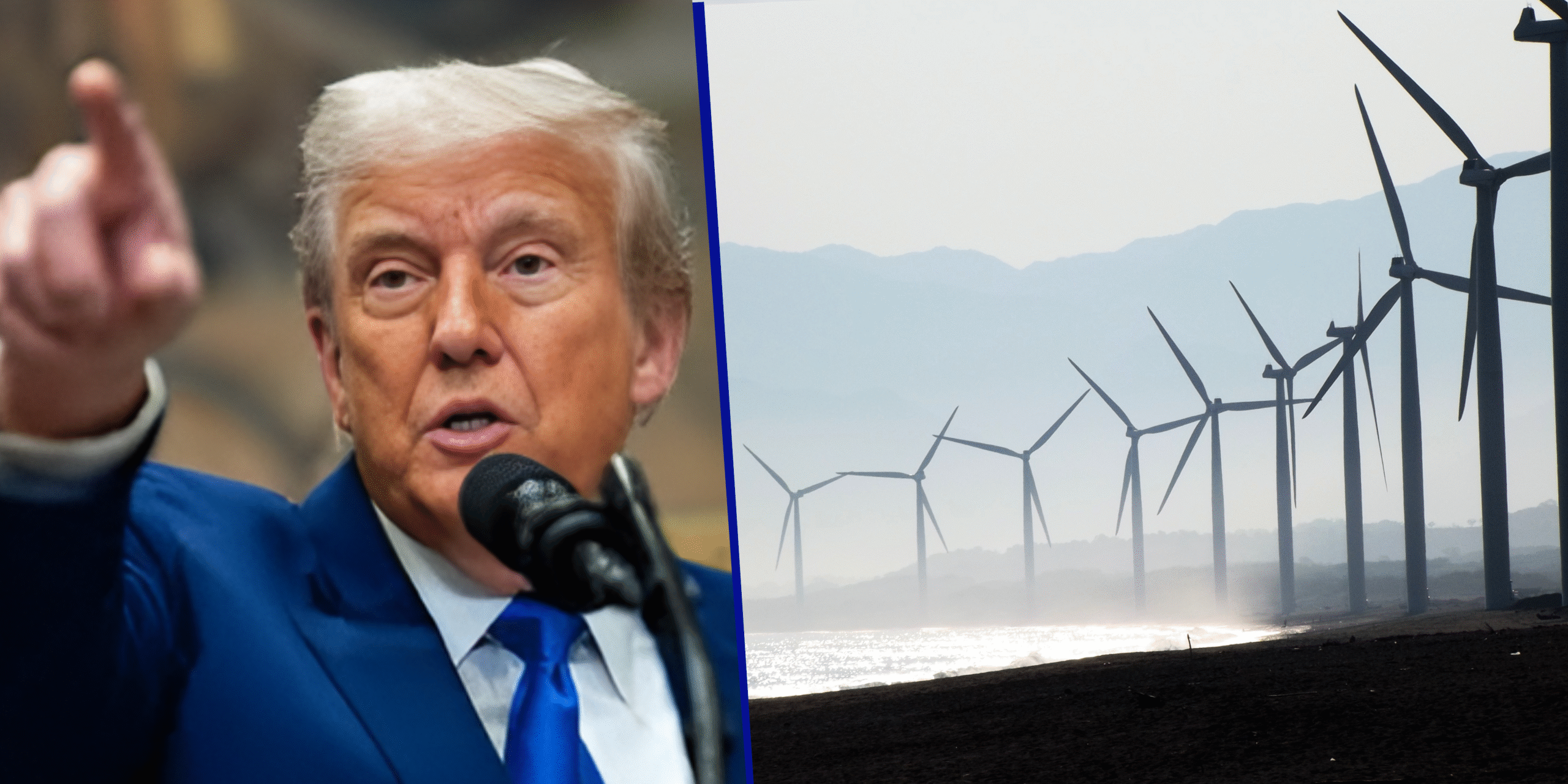President’s executive order Sparks uncertainty over offshore wind
EDF France-based Renewables developer has officially withdrawn from its Atlantic Shores offshore wind project in New Jersey, due to regulatory uncertainty created by the administration and policies of former President Donald Trump. The $5 billion clean energy project faces a significant setback today after the Environmental Protection Agency (EPA) revoked a key permit, halting construction plans just months after federal approval under President Biden.
Trump EPA Sinks $5B Wind Farm
Trump order and EDF withdrawal cited as key reasons
Former President signed an executive order on his first day back in office that directed the Interior Department to suspend future leases for offshore wind projects and reevaluate the permitting process. While the order did not directly affect projects already approved, it did result in the Environmental Protection Agency revoking the environmental permit granted to Atlantic Shores in October 2024. In a follow-up,
EDF Renewables filed a request with New Jersey regulators on Tuesday to terminate the power supply agreement associated with the Atlantic Shores 1 wind project. The move effectively puts the project on indefinite hold and is said to be one of the most high-profile withdrawals in the U.S. offshore wind sector.
Renewable’s filing directly blames President’s decision to revoke the original permit by the Environmental Protection Agency and broader executive actions taken by the White House targeting offshore wind development.
“The President’s wind memorandum, the subsequent loss of permits and other actions taken by the current administration have forced the applicant’s parent company to materially reduce its workforce, terminate contracts and cancel planned project investments,” the company said.
EDF cited in its filing that these actions have created “an uncontrollable level of uncertainty,” making further investment in the NJ project financially and operationally risky.
Impact on New Jersey’s Clean Energy Goals
The Atlantic Shores Wind Farm, a major Biden-era effort that was slated to generate up to 1,500 megawatts of electricity, decarbonize the U.S. power grid and provide clean electricity to more than 700,000 homes, is now a part of the now-defunct Great loss for Renewable Future initiative. It was one of 11 offshore wind projects approved between 2021 and 2024 under the previous administration.
“This filing marks the end of a chapter, but not the end for Atlantic Shore,” Atlantic Shore CEO Joris Veldoven said in a public statement. “Offshore wind continues to provide NJ with a strong value proposition that includes thousands of well-paying jobs, stable electricity prices and real economic benefits.”
However, Veldoven noted that the company is “re-evaluating” its long-term plans in the U.S. due to changing federal policy. Opponents of offshore wind development, on the other hand — including lawmakers, fishermen and environmental groups concerned about marine life — are celebrating the announcement.
“This is a huge win for South Jersey,” said longtime critic Rep. Jeff Van Drew (R-N.J.). “We have been fighting to protect our coastline, our economy and our communities from reckless offshore wind development.”
Bonnie Brady, president of the Long Island Commercial Fishing Association, added:
“Every time a wind company pulls out of a project in the United States, it’s a great day for all of us who make our living from the ocean.”
Offshore Wind Struggle Continues
This is the second major wind project in NJ to be canceled in less than two years. Earlier in 2023, Denmark’s Orsted abandoned its Ocean Wind projects due to economic pressures from inflation and global supply chain problems.
With the France-based renewable new joining the Renewal exit list, questions are being raised about the future viability of offshore wind power in the United States—especially under an administration that favors fossil fuels over renewables.
Conclusion: The Future of Energy Shifts in the Political Policies
As the political winds shift, clean energy developers are facing a new era of uncertainty in the United States. The renewable energy company, who plays a leading role, developed 23 GW over 300 projects, has withdrawal from the Atlantic Shores project could signal a broader industry withdrawal in response to federal opposition—which could have a high-impact impact on the country’s ability to meet climate goals.
Ismot Jerin is the founder and Editor-in-Chief of WindNewsToday, an independent publication covering offshore wind, renewable energy policy, and clean power markets with an analytical focus on the United States and global energy transition.

Thank you for your sharing. I am worried that I lack creative ideas. It is your article that makes me full of hope. Thank you. But, I have a question, can you help me?